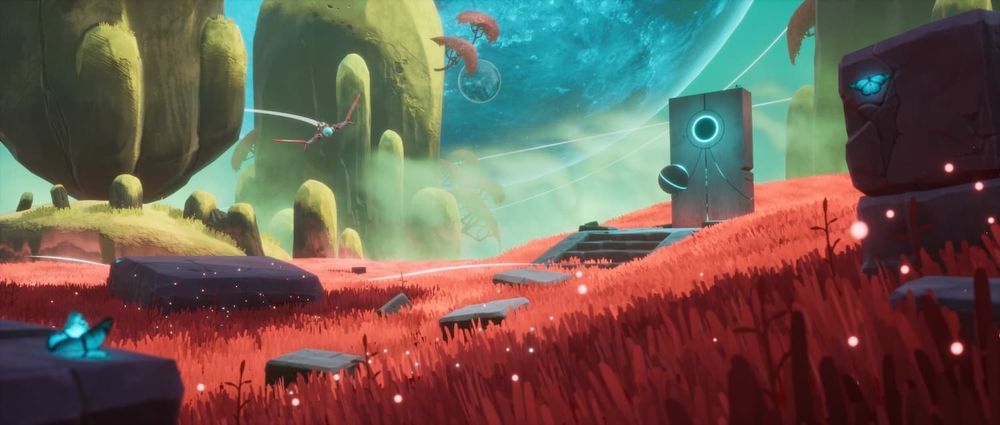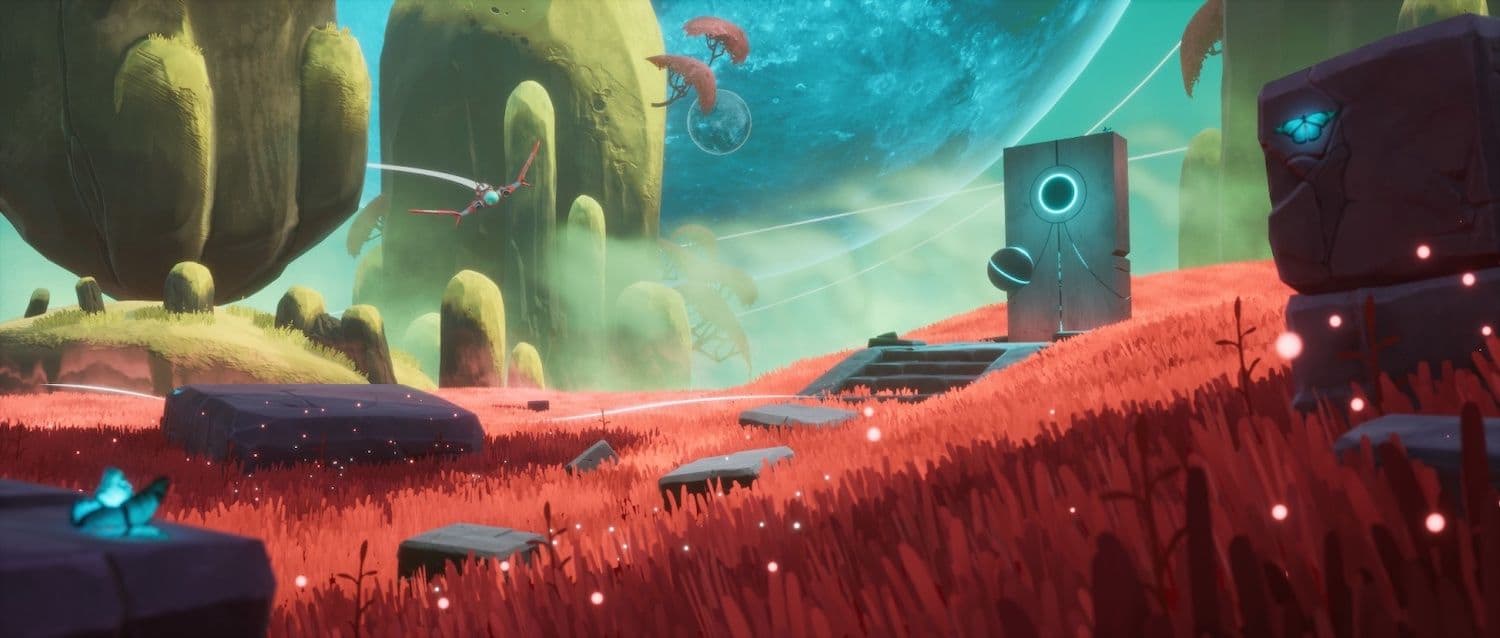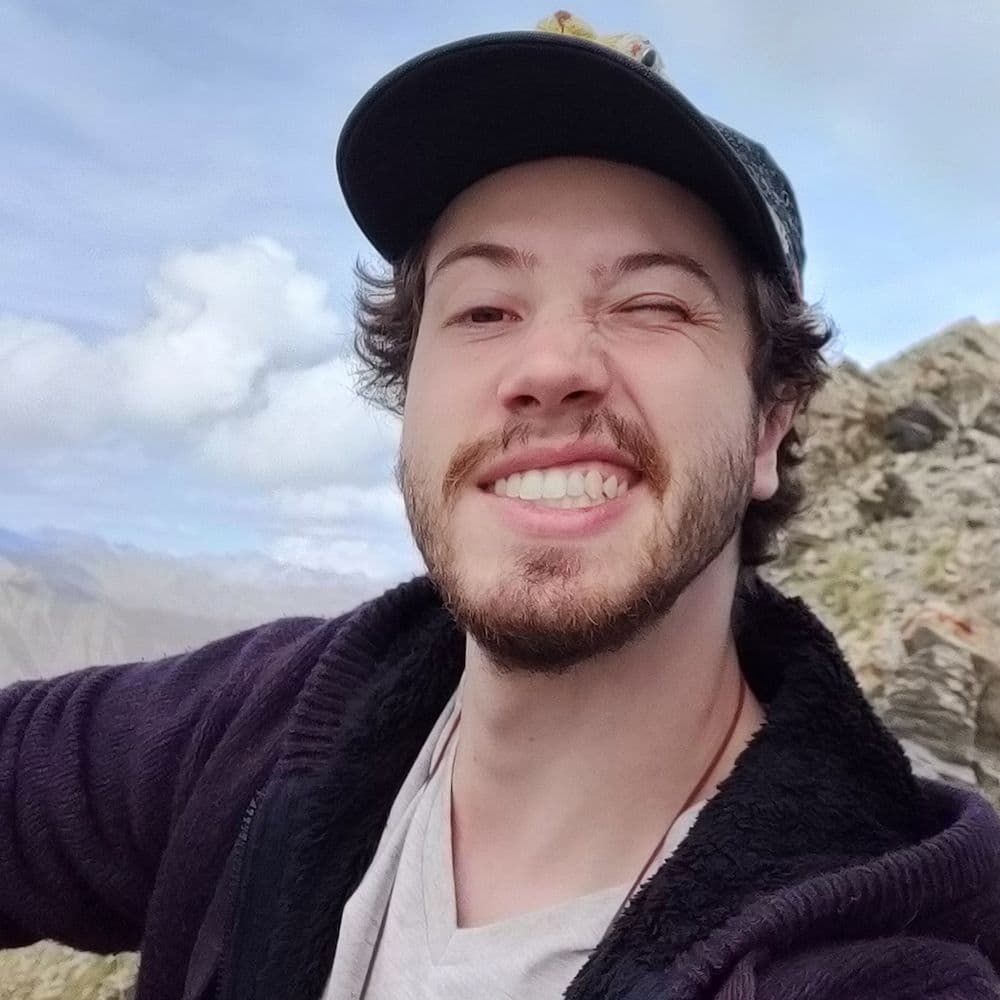
Career Advice: Working as a VFX Artist in Games
New3dge alumnus Thomas Corvée shares tips for creating a vfx portfolio for games and advice on starting out in the game development industry.
Thomas Corvée is a French Junior VFX artist working at Tactical Adventures studio in Paris. Thomas recently graduated from New3dge with a Masters Degree in Game Art, and shares his journey into VFX from the days of playing video games since he could hold a controller, to creating FX for RPG Games.
I'm junior VFX Artist. I create spells like fireball or lightning strike for example. I also have to make environmental VFX such as wind, snow, smoke, rain, waterfalls or create any kind of visual feedbacks to the player.
I am working in a French studio located in Paris called Tactical Adventures and we are working on a tactical RPG inspired by Dungeons & Dragons. It's great as VFX Artist because there are tons of spells and elements to work on!
Well, at the very beginning, I wanted to make films so I went to University. During my three years learning cinema fundamentals, art history and making movies, I found out I wanted to make 3D Animation so that I could have more flexibility in creating visuals.
I went to New3dge school and later had to choose between a Masters in VFX or Game Art. As I’m also in love with video games, the choice was really hard but I finally decided to take the game art route. Moreover, I preferred working in real-time; I just fell in love with Unreal Engine.
During my last year at school, I was contacted by an indie studio based in Bordeaux called Brain Up studio. At the beginning, it was for an internship and then it turned into a part-time position so I could work two weeks at school and then two weeks at the studio during the year. I also worked full time during the holidays.
At school I changed my mind every time we had an introduction course to a specialisation (Character Art, Concept Art, Environment Art, etc.). I love each role and it was really hard to say “okay now let’s focus on THIS job and make it my goal”.
Finally, I decided to become a VFX Artist because we had a great introduction course to Niagara led by Alexandre Vong and it was a good way for me to keep making art and also improve my technical knowledge of the engines.
In addition to that, when I was working at Brain Up studio, I was a 3D generalist as we were only a few people in the team. I worked on cinematics, lighting, environment art, tech art and VFX. This was a great opportunity for me to try different roles in a professional position and helped me a lot to make my decision to become a VFX Artist.

When I finished my licence at University and decided to learn 3D, I was (and still am) a big fan of Unit Image studio for their work on trailers such as God of War, ZombiU or For Honor.
At the time I sent an email to them asking which schools they valued the most for creating successful graduates. They were really open, answered my questions, and gave me a lot of advice including the name of New3dge school. That’s why I came to Paris and started studying at New3dge.
New3dge is a great school and keeps getting better each year. There is a strong cooperative spirit between the students. I feel like the students in this school are really nice, I personally never had any bad time there and I feel really lucky to have come to this school.
The game art courses at New3dge are great! We learned all the fundamentals, the teachers are great and the level keeps increasing every year.
At New3dge the teachers deeply encouraged us to always keep learning: extending ourselves from the lessons we had at school and to source and discover other relevant content online including tutorials.
This is great because, in my personal case, I was already used to sourcing art inspiration online and watching tutorials, wanting to go always absorb more than what I had in front of me.
The day starts with a "stand-up" meeting and then I check my tasks on Jira (a website where producers can send you the tasks for the day, the week or anything else). After this, I start creating.
Effects work can take anywhere from an hour for a simple effect for which I can reuse some emitters and change their behaviour, or up to a few days if the effect has a new behaviour that I have to test and build.
I mostly working in Blender, Photoshop and Unity.
As we don’t always have concept art for the effects, I usually start by searching different effects on Artstation, Pinterest or Magesbox based on the description of the effect and gather these inspirations to make a mood board.
Then, I look for already completed emitters within the project that can be useful to speed up the process; if possible it is better not to start from scratch each time. I create my mesh in Blender if needed and sometimes paint textures in Photoshop for some specific needs. Finally, I assemble all of this and record a small video of the final result.
I’m mostly working with the Art Director and sometimes when I need some specifics on the effect and how it will be used to, I may have to ask the level builders and the game designers. If I have any technical issue, we have a great development team to help us on the engine.
Not really, as VFX artist, we always have to keep being aware of the new features of the engines (especially Unity and Unreal Engine as they are the most commonly used) but I don’t think that it affects the nature of the role for the moment. I know some VFX Artists start to create procedural textures using AI. For the moment, I haven't tried this yet but still I don't think this is a real game changer.
I think the most exciting part is making the shaders. It’s funny because when we got our initiation to Unreal Engine at school, the shader part was so frightening for me! It felt overwhelming and so complex to me that I thought I would never understand a thing about it. With time and practice, I felt more and more comfortable with it and now that I fully understand the logic, it’s so exciting and rewarding when I make complex shaders that react as I want!
Actually, I wouldn’t mind if all the different engines could unify their orientation gizmos and scale factors. I mean, that could be a good idea right?
No, it’s not. Everything you learn at school can be learnt at home on the internet but there is one major difference: If you are learning from home you will need a lot of discipline and motivation.
Formal education is great for people like me who need a framework to keep motivation even on the hardest days.
In France, I had a great surprise about the game development community once I started working professionally. My colleagues at Brain Up studio invited me to an event called the Game Camp. It’s an event reserved for professionals and I had no idea about how great the gamedev community was. People were really open, I met a lot of amazing people and I saw a lot of cooperation between studios this is really satisfying.
Focus on your portfolio, don’t try to get as much pieces as possible but focus on a few pieces that are great, polished and well presented.
Take your time to make clean renders for your Portfolio and don’t hesitate to post a lot on social media.
Just don’t be too attached to your first pieces and hide them on ArtStation to keep only the most polished. People will only remember the worst of all that you show.
It really depends on the game you are working on. As a junior VFX artist, you will certainly have to make some burst effects if the player can make spells or anything.
A big part of the job is also making environment effects such as smoke, torches, fire… it can really vary. Sometimes for environmental FX, it can be hard to decide if either it’s a VFX Artist’s role or an Environment Artist’s one (take a waterfall as example).
I’m not hiring yet but of course studios are looking for artists that already have an interest/experience in the art direction of their game so it’s a good thing to show that you can make a wide range of styles from realistic, to cartoony, if you want to keep all the doors open.
It’s not a problem if you want to specialise in particular style as well because you may be stronger in that precise style and therefore become more noticeable by studios working on games with this same style or similar.
It's not really a skill but I think people need to be less attached to their work. It can be frustrating to get a lot of retakes on work that you spend a lot of time on and you are proud of, but remember that a game is team work. The Art Director is the one who has to make everything coherent, he will always have the last word even if you disagree.
Most of the time, studios have only a few VFX artists in their team. It’s a great role if you like to focus on your work; I like to find the solutions by myself and try to avoid asking every time for help.
Meanwhile, it’s always great to ask for feedback, even to people that are not in the industry (if it’s not NDA sensitive of course) so you can have a new eye on your work.
Everyday, when I open my browser, I check ArtStation the newest works. It’s always great to keep an eye on the other artists on your field, comment and ask how they made a certain peace; an awesome real time ocean waves with those accurate caustics and reflections for example!
Check for tutorials, share your knowledge - we are a big community so use this to your advantage and learn the most you can from it. Don’t hesitate to join Discord servers such as: DiNusty Empire, Experience Points, RealTime VFX and even TheRookies.
Make a kickass FX, the most powerful you can, so that it grabs the eye and try to exaggerate the anticipation and action (that's a personal taste but I think it's really fun to do).
The most important thing is to include still frames, explanation and/or a full breakdown to show your mindset and workflow. You must show that you understand the limitations of a game-ready effect (avoid unnecessary particle overcount, limit as much as possible translucency overdraw and make your effect really clear on it's purpose such as heal, buff, elemental damage, etc...)
I know some people are still afraid when seeing that job postings require that the candidate needs to have 2 or 3 years of experience in the industry. If it’s not your case, I would suggest not to care about that as it’s just a way for studios to filter the candidates, it’s not a strict condition.
If you want to apply to a job like this, you need to be confident about your skills/portfolio and be sure that you are ready to work for a studio that will ask you more than a studio asking for a junior.
Working hard is good but please take some rest. No one should work all day and night. It’s great to make personal projects after your studio work, but don’t spend too much time on it.
Relax, take your time on personal projects and whether you are working from home or at the studio, a break will always be a benefit to you and your work.
Make more backup saves and don't forget to manually save a new version each time you make significant changes! And, relax. This industry can be stressful sometimes but don't let it get to you. We are just making videogames, no need to strain yourself for this, keep having fun, stop comparing yourself to others and be patient about your skills as they will develop in time.
You can find more of Thomas' work on ArtStation, Instagram and LinkedIn.
